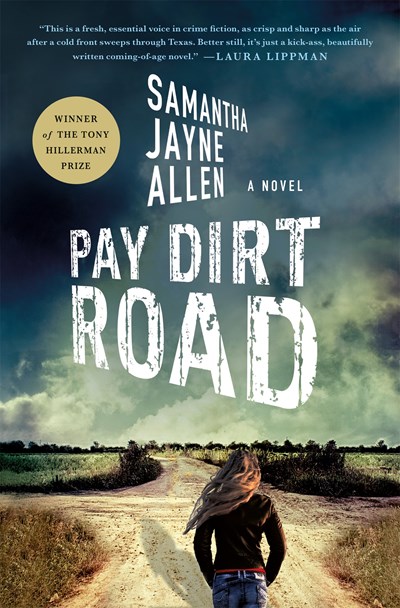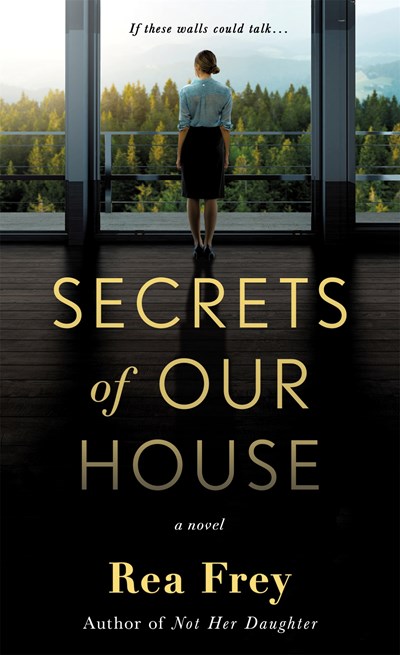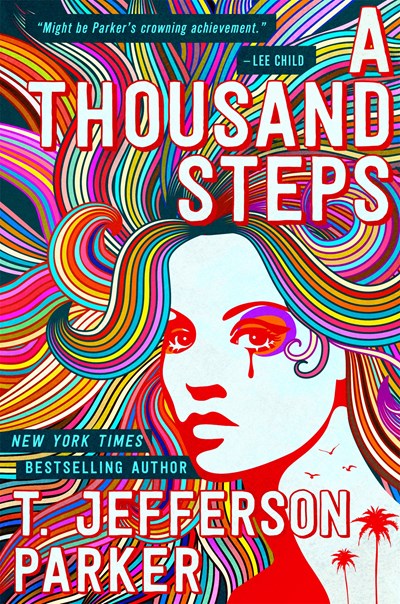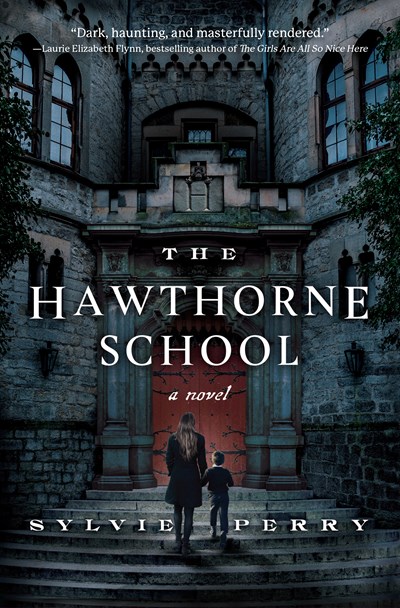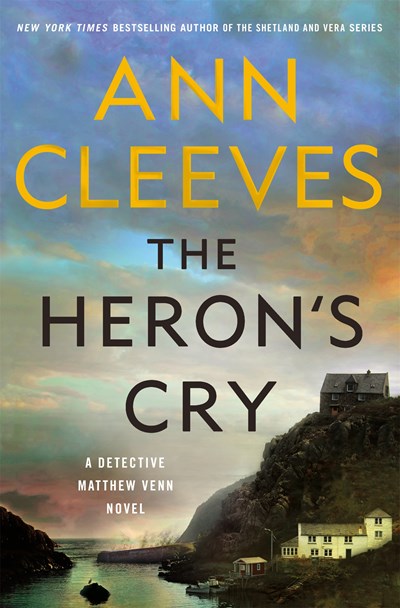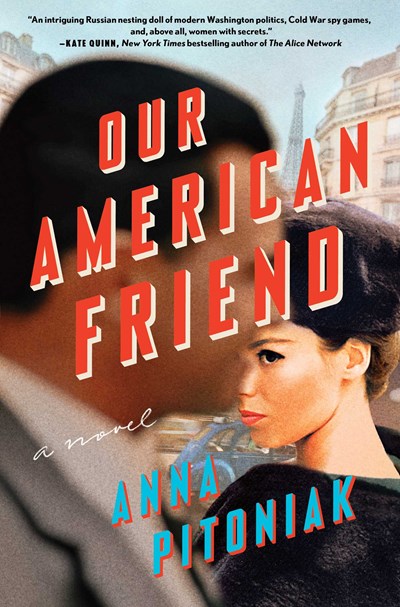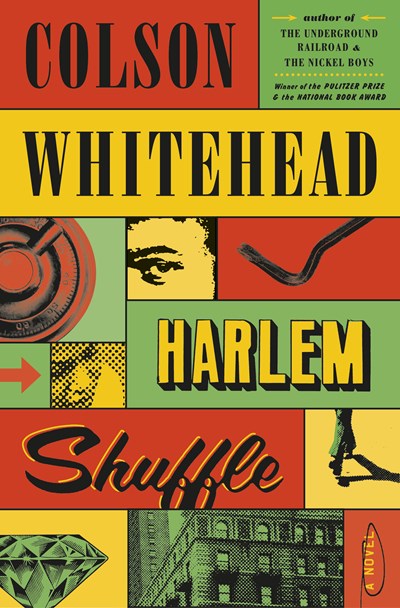In this striking, character-driven debut, Annie McIntyre is back in her stifling—temperature-wise and socially—Texas hometown, Garnett, where football is a religion and prom queen a lifetime appointment. Smart, introspective Annie escaped and went to college, but now she’s waiting tables while student-loan repayments loom. When a hit-and-run death and the strangling of Annie’s coworker happen within days of each other, it seems like Garnett’s dirt and buildings as much as its people heave a resigned sigh at another thing to deal with. Annie’s former-sheriff grandfather now has a private investigation business, but it falls mostly to his granddaughter to care enough to solve the cases. The language of Annie’s inner thoughts is the kind of writing that makes you too stunned to read on for a bit. Her anguish at a teenage attack is “a morsel of pain under my tongue” and her lingering bedtime thoughts are “ghosts pressed and curled against my back.” Allen already won the Tony Hillerman Prize for Best First Mystery Set in the Southwest for this book, and no wonder. While waiting for this, try Wiley Cash’s also-stunning A Land More Kind Than Home, which Allen’s writing brings to mind.
Star
This is one of those books that makes you want to befriend the characters, or at least get annual updates on how it’s all going. It’s a family story with two couples as focal points: Desiree (Desi) and Peter, whose marriage seems to be ending, due in part to a mysterious past event; and their daughter Jules and her boyfriend Will, crazy-in-love teenagers. While the young couple’s romance is just starting, it also seems doomed, as Jules is a rich, summertime-only visitor to Will’s rural North Carolina town and is leaving soon for college while less-well-off Will stays put. Both relationships are tested by tragedies and bring each character’s most extreme emotions to the forefront, feelings that are poignantly described by Frey (Until I Find You, 2020). Desi is a particular highlight, with her flawed parenting lending a rawness and realness to the book; the strain induced by tragedy brings her to drop a bombshell revelation that shocks family and readers alike. After this, you may feel like no other characters can measure up and head straight to the TV; once that has passed, try a book I’ve recommended in First Clue before, but I’m doing it again! Paullina Simons’s The Girl in Times Square; those characters almost ruined me for other books.
Matt Anthony, a high-schooler in 1960s San Francisco, has the weight of the world on his skinny shoulders. His conservative father abandoned the family and writes only to rail about the “queers and communists” who have taken over the city. Matt supports his family with a punishing paper route while living off fish he catches and foraging restaurant leftovers, all because his mother claims to have a curiously long-lasting flu but is actually using their grocery and rent money on drugs. Worst of all, right after Matt sees a teen girl’s body washed up on the beach, his sister Jasmine goes missing. Matt’s mother doesn’t take Jasmine’s disappearance seriously for days and the police are little help, leaving Matt to investigate the seedy human infrastructure of the city’s drug scene, which wears a veneer of peace and love but underneath is cut-throat capitalist. Matt’s story is akin to an ancient epic that sees the hero tested and battered (his lengthy skirmish with a giant fish—two week’s worth of food for a hungry boy—is terrifying). But ultimately he triumphs as he fights for what’s right. The prolific Parker has 27 other novels to back this up, most recently Then She Vanished (2020); readers who like a modern epic should turn to Michael Hughes’s Country, a version of The Iliad set in present-day Northern Ireland.
Some books you read for plot. Others for setting. But this dazzling debut is all about voice, specifically that of Ruby Simon, lovable murderer. The book opens with 30-year-old Ruby at the Miami Beach Police Department, being interrogated about the recent death of her husband Jason—the one murder she isn’t responsible for—as well as three earlier deaths she did commit, but got away with. “Four is beyond a pattern. Four is beyond bad luck or coincidence. Four means I’m at the center of it all, these deaths orbiting around me like the planets around the sun.” Ruby takes us back to her first murder at five years old, when she drowned another little kid, her teen years in Miami Beach (one more murder), college at Yale, then back to Miami for graduate school in psychiatry (another one bites the dust), and finally Jason’s accidental demise. It’s tempting to think Ruby is a sociopath, but no, she experiences a full range of emotions, from empathy to regret and from compassion to sympathy. It’s the rare book that has you rooting for a multiple murderer, but that’s just part of screenwriter Rothchild’s magic. The most engaging novel I’ve read yet this year.
Since Claudia Vera’s mom died, it’s just Claudia and her four-year-old son, Henry. She struggles to pay for the cheapest daycare in her Illinois town and is overjoyed when the exclusive Hawthorne School gives Henry a full scholarship, asking the awestruck mom only to volunteer at Hawthorne in return. Things soon turn decidedly odd. Claudia never sees any other parents, and the principal is increasingly insistent on Hawthorne’s unorthodox ways and on Claudia spending hours at the school doing unnecessary tasks. Oddness soon turns to a frightening effort to control—as the publisher’s discussion questions note, this book can be read as an allegory on narcissistic abuse—and Claudia finds herself in the most confusing and terrifying situation of her life. Scary, gothic schools are often found in mysteries, but this one differs in only featuring psychological horror (author Perry is a psychologist), no ghostly terrors. It also differs in presenting a Latinx mom and the use of Spanish (which you don’t need to understand to read the book) to both propel the narrative and help the protagonist. Perry excels in getting inside the head of an unsure mom and has written one of the most unusual and best mysteries of 2021. Fans of psychological mysteries and of the movie Get Out are the audience for this.
Subtle and nuanced, this novel is the prolific Cleeves at the top of her game. Detective Matthew Venn is called to a sort of artist commune, where a body has been found in one of the studios with a large shard of glass protruding from its neck. The victim, Dr. Nigel Yeo, is the loving father of Eve, a glassmaker who lives and works in the commune. This sets in motion an investigation that gains urgency as the days pass and the bodies begin to stack up. Cleeves takes on some tough issues here—including suicide—and it’s one of her darker books. But as always with this author, the murder narrative is delightfully punctuated with insights into the lives of Venn—still recovering from his evangelical upraising—his husband Jonathan, fellow detectives, and even several of the suspects. Cleeves is the author of the hugely popular Vera and Shetland series, the latter now finished. Broadchurch viewers should appreciate Cleeves’ wide-angle lens and focus on community.
Journalist Sofie Morse is puzzled when U.S. First Lady Lara Caine, who at first appears to resemble Melania Trump—Eastern-European former model, cold demeanor, revolting husband—asks Sofie to write her biography. Sofie grows more bemused when interviews for the book reveal intimate details of Lara’s shocking history, a backstory that the president’s devotees won’t like at all. The tale woven by the First Lady is both a romance and a political drama that takes readers from Moscow to Paris and then New York, as Lara grows from dutiful Russian child to rebellious teenager, becoming forever changed by powerful love with a Soviet resistor while the regime he loathes crumbles. In the present day, Sofie and her husband are dragged into peril themselves as the interviews play out, with Lara’s family in the past and Sofie’s in the present embodying Churchill’s description of Russia as “a riddle, wrapped in a mystery, inside an enigma.” After Pitoniak’s (Necessary People, 2019) absorbing, immersive thriller, readers who enjoyed the romantic side of the work should try Paullina Simons’s The Girl in Times Square, while those who liked the dysfunctional Russian family aspect should be steered toward Zhanna Slor’s At the End of the World, Turn Left.
With two Pulitzer prizes for fiction under his belt, it’s not surprising when Colson Whitehead writes a character for the ages, but beleaguered everyman Ray Carney is a standout even for Whitehead. “Living taught you that you didn’t have to live the way you’d been taught to live,” says Carney, a young Black man who’s barely making ends meet in his Harlem furniture store while dreaming of more. The pressure’s on, too: his parents-in-law think their daughter could have done better, and Carney longs to be admitted to his father in law’s “paper-bag club,” but with skin darker than said brown bag, he’s not allowed. Loyalty to his own family leads Ray to help his cousin Freddy; always sketchy, Freddy convinces Carney to help him in a can’t-go-wrong robbery scheme that, yes, goes wrong, starting Carney on a heartbreaking trajectory. This character’s relentless efforts to make good in a world that expects and revels in his failure will remind readers of Jean Valjean in Les Miserables. Shadowing Colson’s terrific crime tale are the final throes of Jim Crow and the claw-your-way-up culture of early 1960s Harlem, but most of all, Carney will grab readers’ hearts and stay with them.

